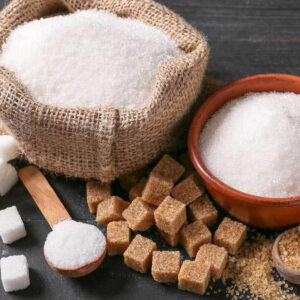Discovering the Distinctions in operation and Advantages Between Beet Sugar Vs Cane Sugar
In the culinary globe, the choice between beet sugar and cane sugar is not merely regarding sweet taste yet entails a nuanced factor to consider of taste, application, and impact. While both sugars stem from different plants, each undertakes distinct manufacturing processes that discreetly influence their characteristics and suitability for various recipes.
Origins and Manufacturing Processes of Beet and Cane Sugar

Walking stick sugar, on the other hand, comes from the sugarcane plant, an exotic lawn native to Southeast Asia however now grown in exotic areas worldwide - beet sugar vs cane sugar. The production of cane sugar begins with the harvesting of cane stalks, which are squashed to release the juice.

Nutritional Material and Health And Wellness Considerations

When comparing the nutritional content of beet sugar and cane sugar, it ends up being noticeable that both types basically supply the very same calorie values, with about 16 calories per tsp and no considerable nutrient variety. Each is made up almost totally of sucrose, which is a basic carb that provides quick power yet does not have vitamins, minerals, or fiber. This similarity encompasses their influence on wellness, specifically worrying blood glucose degrees. Both sugars, when eaten in excess, can add to raised blood sugar degrees, a risk variable for diabetic issues and various other metabolic problems. Extreme consumption can lead to weight gain and oral troubles, as both sugars are equally cariogenic, promoting tooth degeneration. From a wellness viewpoint, moderating intake of any kind of sugar, whether from beet or cane, is suggested to avoid these prospective negative impacts on health. Hence, neither holds a distinct advantage over the various other in regards to wellness advantages.
Flavor Profiles and Culinary Applications
Despite their similar chemical structures, beet sugar and cane sugar vary discreetly in flavor, which can affect their usage in numerous culinary contexts. Cane sugar commonly brings a tip of molasses, even click over here in its polished type, offering a warm, caramel-like touch that improves baked goods, coffee, and chocolate-based dishes. On the other hand, beet sugar is identified by its highly refined, neutral preference, making it a versatile sweetener that does not modify the taste accounts of dishes.
Environmental Effect and Sustainability
While both beet and cane sugars are stemmed from plants, their environmental impacts differ considerably due to the distinctive techniques of farming and processing required for each and every. Sugar beet growing often includes substantial automation, which can raise nonrenewable fuel source usage and carbon discharges. Beets can be expanded in cooler environments and require much less irrigation, possibly lowering water usage compared to sugarcane. Sugarcane, on the various other hand, is usually expanded in tropical areas where it relies greatly on irrigation and a longer growing duration, increasing its water impact.
Additionally, the processing of sugarcane commonly generates a significant amount of waste, including bagasse, which, although usable as biofuel, frequently adds to air pollution if burned inefficiently. Sugar beet handling uses more of the raw materials, causing much less waste. Both sectors deal with obstacles in minimizing their environmental footprints, yet ongoing advancements in agricultural methods and waste management are intending to enhance sustainability.
Economic Factors Affecting the Sugar Market
The economic dynamics of the sugar industry are dramatically influenced by global market needs and trade plans. Variables such as tolls, aids, and international trade arrangements play crucial roles in shaping the affordable landscape. In areas where sugarcane More Bonuses or sugar beet production is subsidized, producers may have a financial benefit that allows them to offer lower costs on the worldwide market. This can develop read review variations in productivity and market accessibility for producers in nations without such subsidies.
In addition, fluctuations in worldwide demand for sugar, influenced by nutritional patterns and industrial usage in food, straight effect prices and manufacturing degrees. beet sugar vs cane sugar. Weather problems likewise play a crucial role, as they can considerably impact plant returns and, as a result, the supply chain. This variability presents a level of economic unpredictability that can bring about financial investment volatility in sugar production sectors, influencing choices from planting to market strategy
Verdict
To conclude, both beet and cane sugar have one-of-a-kind qualities that suit various cooking needs. While cane sugar conveys a rich taste perfect for enhancing baked products, beet sugar's nonpartisanship is ideal for lighter recipes. Nutritional similarities regardless of, their distinctive manufacturing procedures and environmental effects include complexity to the choice in between them. Hence, comprehending these distinctions helps cooks and consumers make informed choices that align with their health, cooking, and honest preferences.